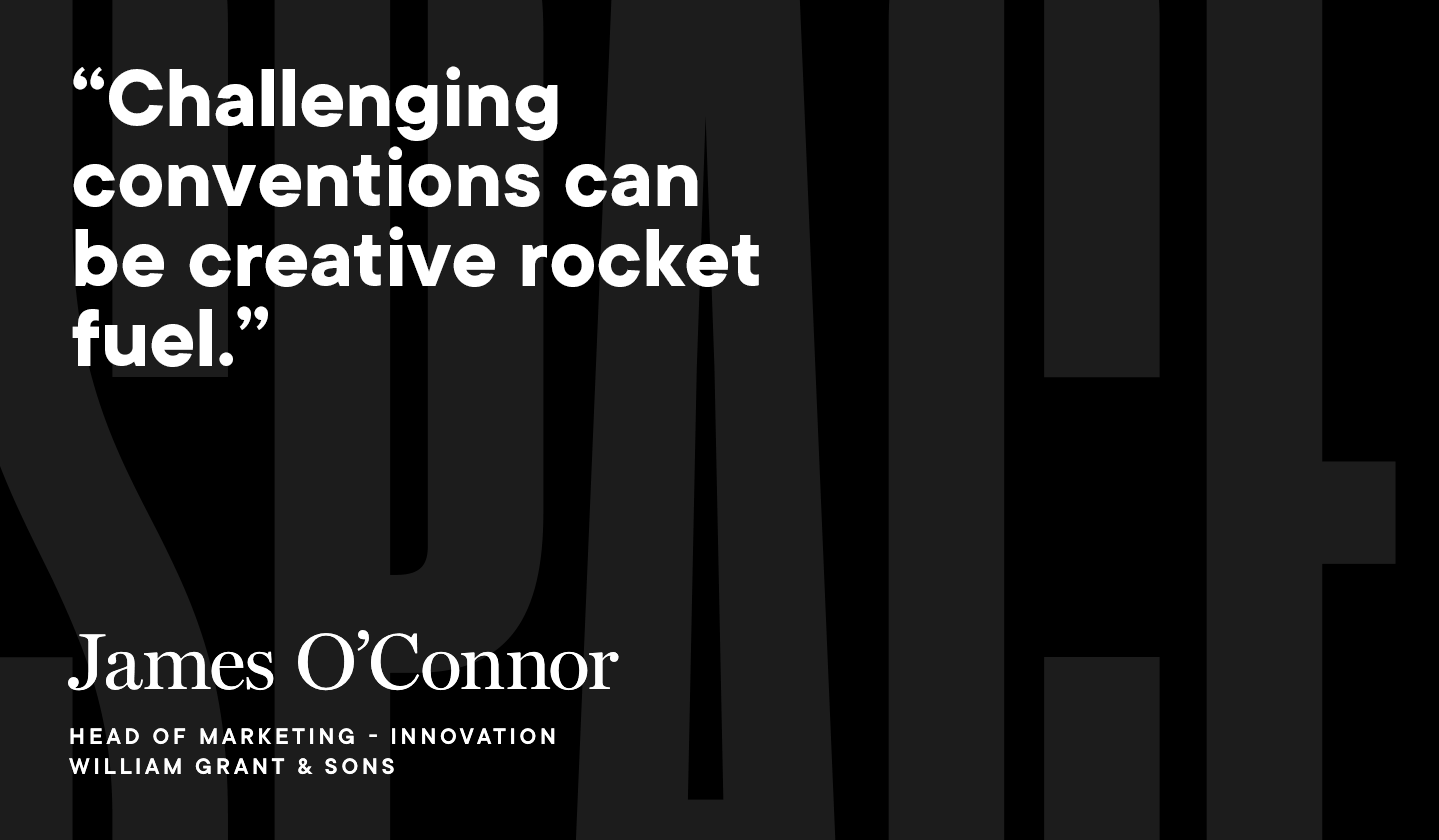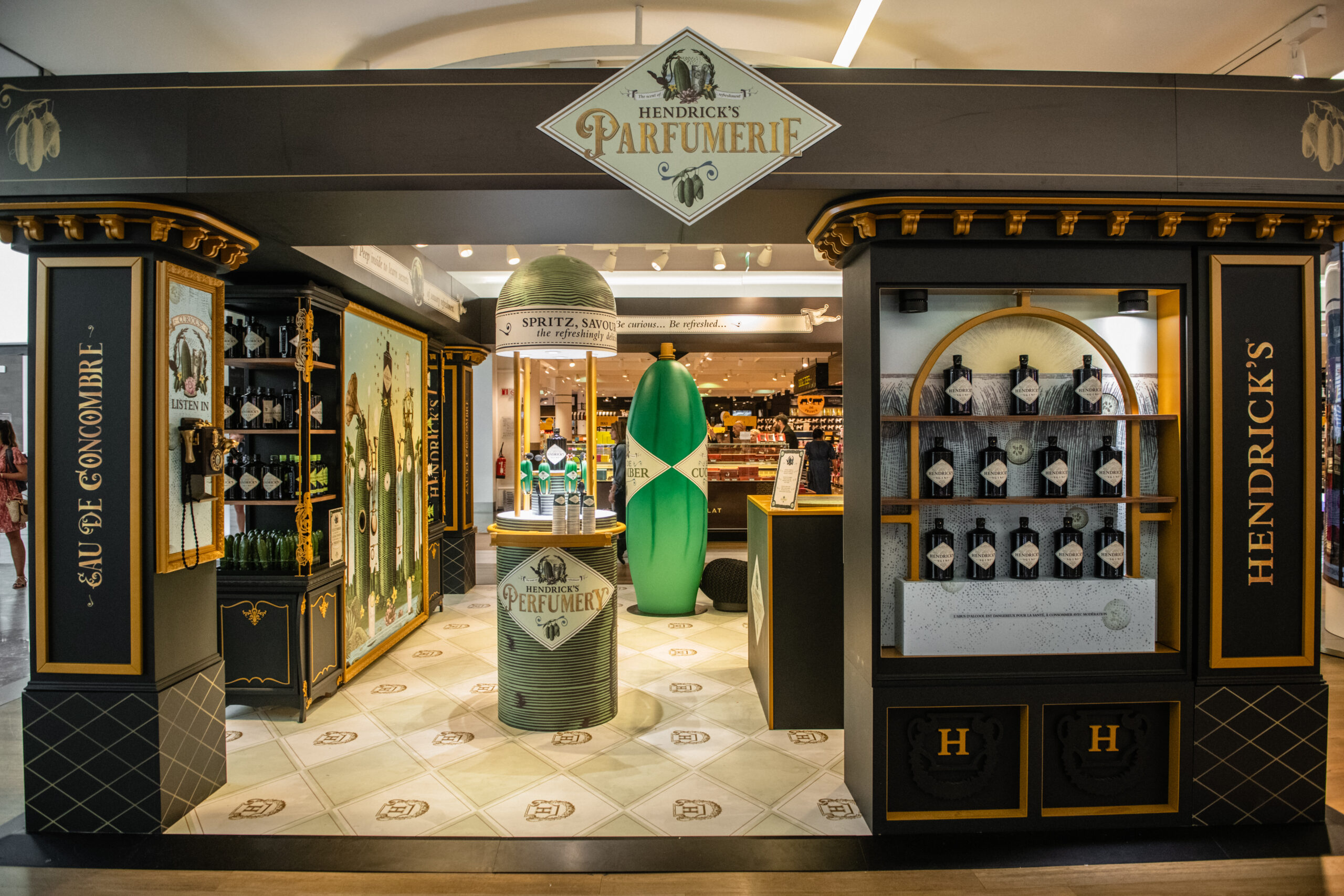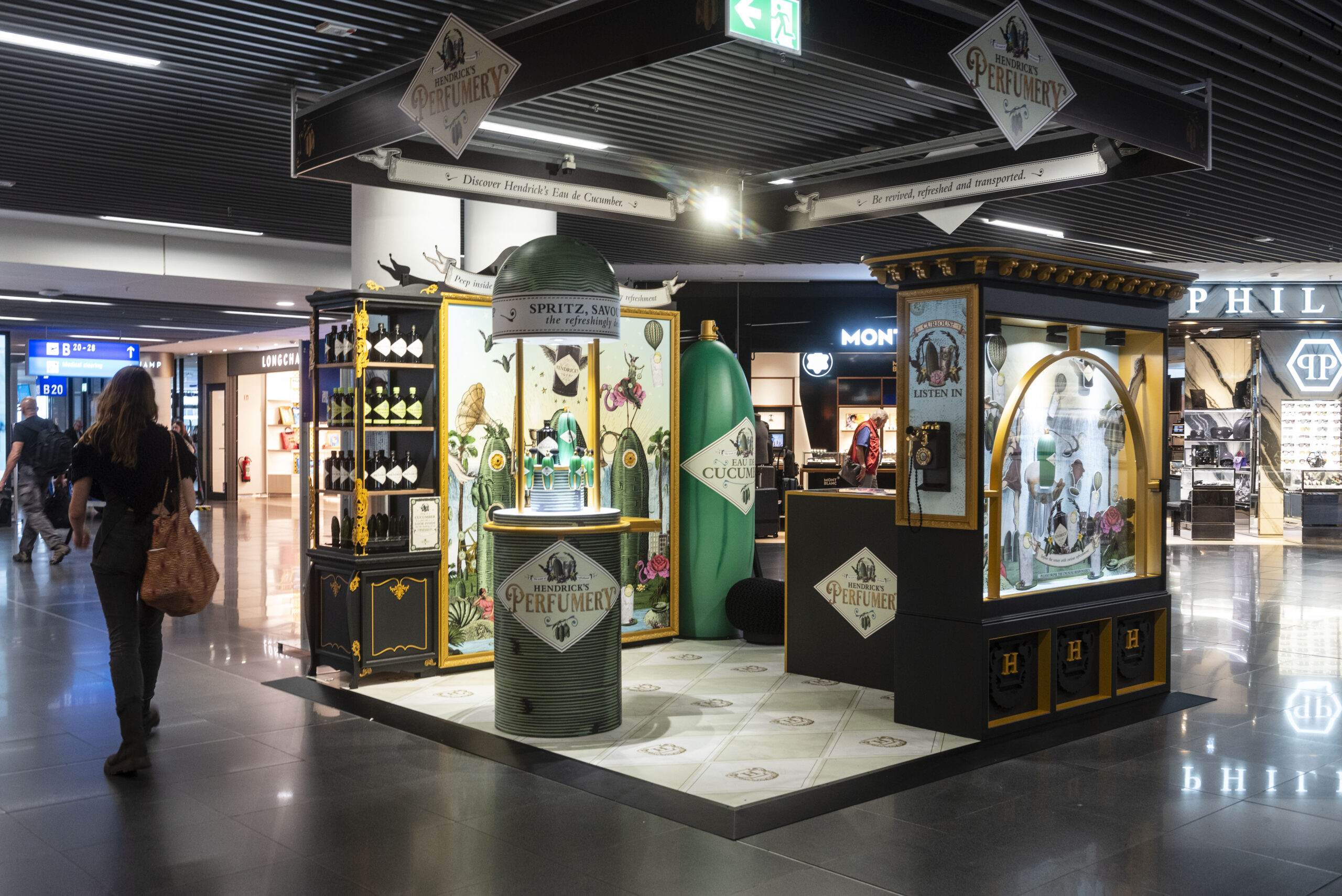Going Beyond Convention with James O’Connor, William Grant and Sons
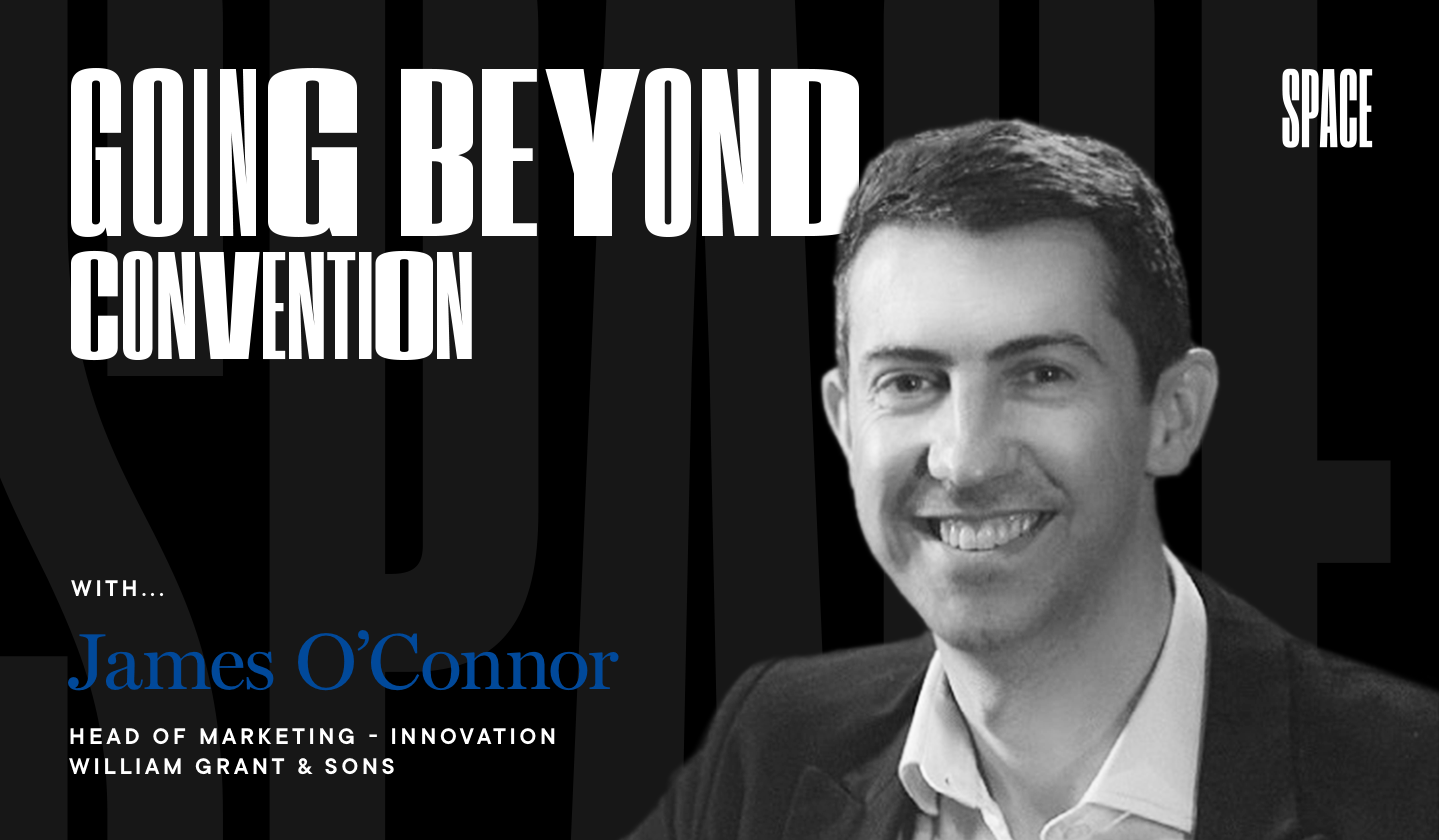
“Going beyond convention” is our regular interview feature where we shine a spotlight on those marketers who are championing creativity that stands out and gets talked about.
In each interview, we pose three simple questions to uncover what it means to challenge the status quo and why it’s so important for brands, which brands do the marketing community admire for taking this approach and what advice our guest interviewee would give to fellow marketers ambitious to go beyond convention.
Our first guest is James O’Connor, Head of Marketing – Innovation at William Grant & Sons UK.
James is a highly experienced drinks marketer having spent the past 11 years working at William Grant & Sons and, prior to this, 2 years at Bacardi. His William Grant & Sons career includes both brand management (Glenfiddich, Hendrick’s Gin, Drambuie) and innovation roles at both a global and local UK market level.
James’ passions lie leading creative teams to ‘do the new’ – creating new products, experiences and brands that connect with people and grow businesses. While completing an executive MBA, he spent time studying the process of entrepreneurship in start-ups and established businesses, which inspired his move to the innovation team at William Grant & Sons.
A long-time collaborator with Space, his most recent work with the agency is “The World’s Most Rubbish Bar” brand experience for Discarded.
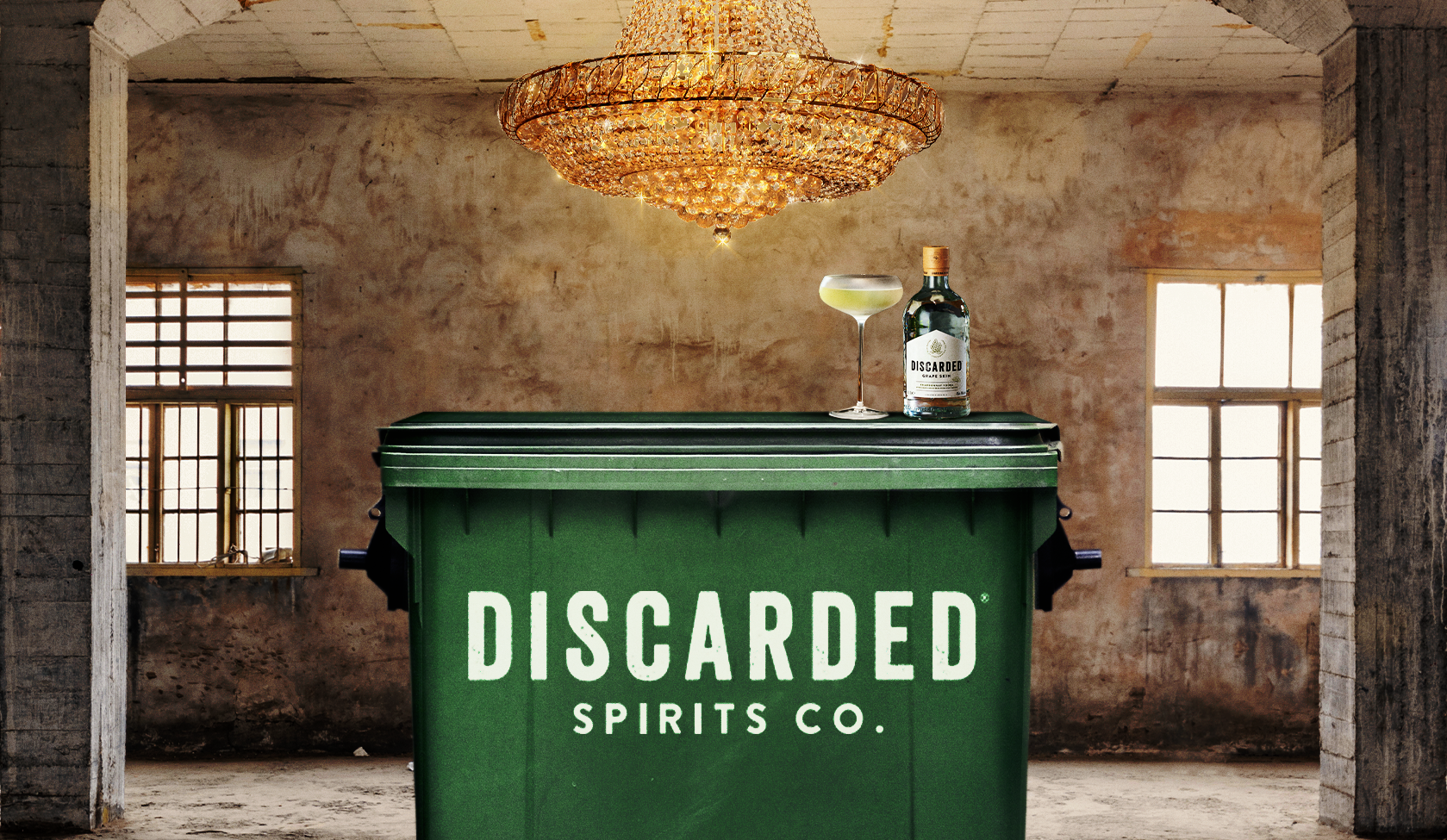
What does “going beyond convention” mean to you and is it important to Discarded?
In our pre-apocalyptic, novelty-obsessed world, ‘conventional’ can sound boring at best, and dangerously conservative at worst. Conventions in marketing, business or society are seen as the things we need to challenge to bring about positive change, or ‘disrupt’ to cut through with our messages, right?
But not all conventions are bad and being thoughtlessly unconventional can alienate the very people you want to reach. In his book Hit Makers, Derek Thompson observes that humans are hard-wired to be both interested in the new and comforted by the familiar. Reconciling these two needs is the key to creative success – challenging some conventions to spark interest, conforming to others to provide reassurance.

Discarded Spirits Co. challenges some conventions and conforms to others. With our range of zero waste spirits and campaigns like ‘The World’s Most Rubbish Bar’, we take people beyond conventional perceptions of waste, luxury. and sustainability. We show that with a bit of ingenuity, used banana peels can become an award-winning rum. The remnants of the wine harvest can become a sublime grape-skin vodka; and the waste of the coffee industry and be reused to create a delicious, sweet vermouth. Rethinking waste and being more sustainable doesn’t have to mean sacrificing luxury.
As we pioneer the sustainable spirits movement, in other respects we need to be more conventional to bring people with us. For example, while our packaging is 100% recyclable and made from innovative materials like waste sugar cane fibre, from a distance it’s still a 70cl glass bottle with a cork – because, for now at least, this convention is important to our customers and consumers.
What other brands do you admire for “going beyond convention”?
I’m a fan of two Californian brands that go beyond convention: Patagonia and Impossible Foods.
I was introduced to Patagonia in the 90s when visiting my super cool aunt and uncle in Santa Barbara. Before sustainability was a thing, Patagonia was already leading the way with lifetime guarantees and clothes made from recycled plastics. We bought a fleece I’m proud to say is still in rotation today.
In 2011, working in marketing, the brand caught my eye again when they took a full-page ad in the New York Times urging people NOT to buy their products, highlighting the environmental impact of Black Friday consumerism. They later repeated the trick by shutting down their website on the big day, and subsequently have donated all Black Friday profits to eco charities. Taking on such a dominant commercial convention allows Patagonia to clearly define what they are about, while generating a massive amount of earned coverage and brand love. Challenging conventions can be creative rocket fuel.
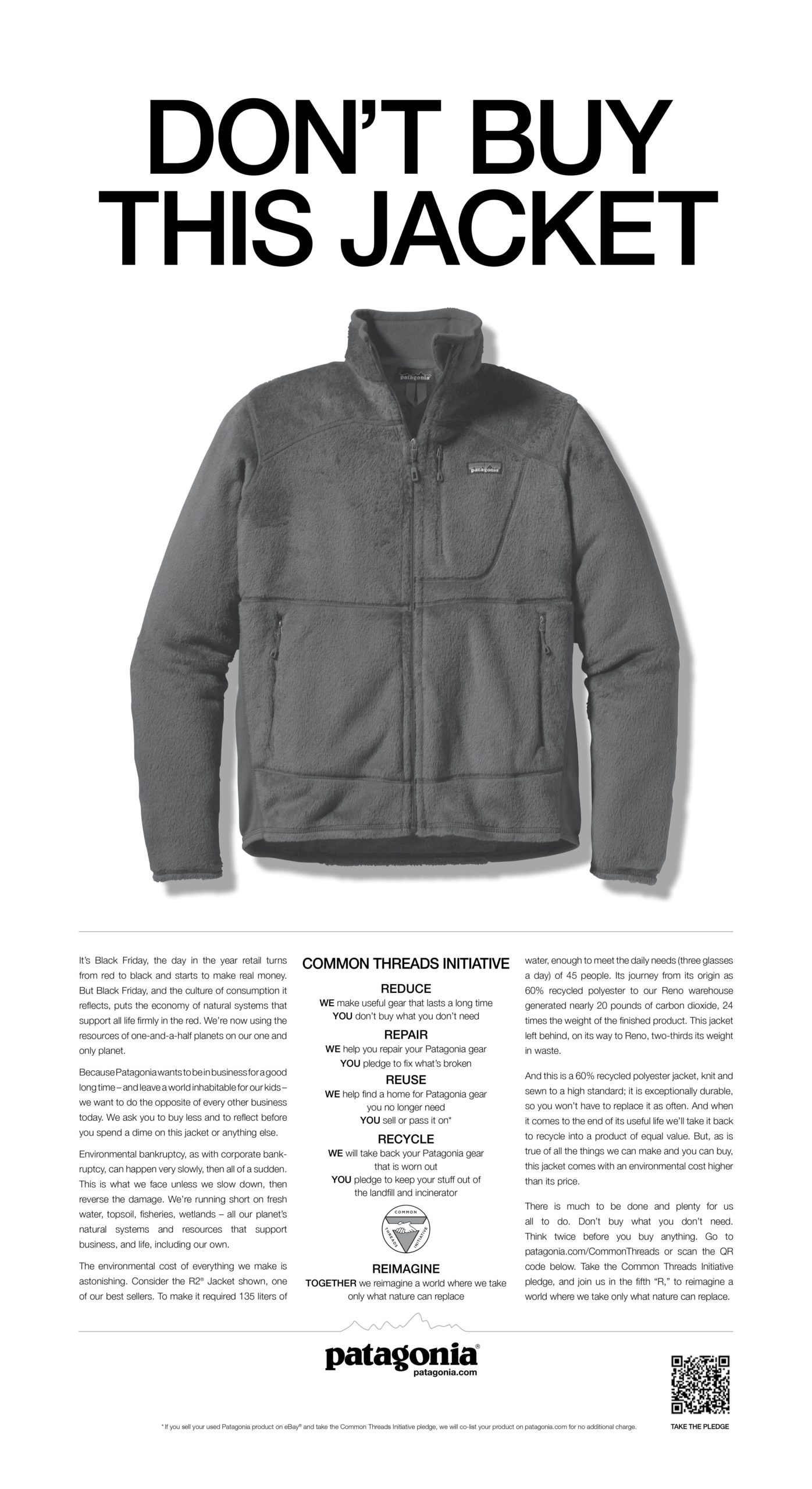
My second brand launched the same year that Patagonia was in the New York Times. Impossible Foods is one of the pioneers of the ‘meat made from plants’ industry. With sales of around $250m a year primarily from US restaurants and retailers, the company is now valued at around $7bn.
This brand is a perfect case study of the need to balance newness and familiarity to create a hit. Impossible Foods challenges the idea that meat has to come from animals and encourages us to change our diets to reduce our environmental impact.
These are big conventions to move beyond, so to mitigate the psychological risk for people, they’ve made their products ultra-conventional in every other regard. They make burgers, sausages, and chicken nuggets – iconic meat products – and carefully form and flavour them to match the originals as closely as possible. They’ve even found a way to make their burgers ‘bleed’ when you squeeze them, using a beetroot extract. When you’re leading people into the unknown, you need to make it as familiar as possible.
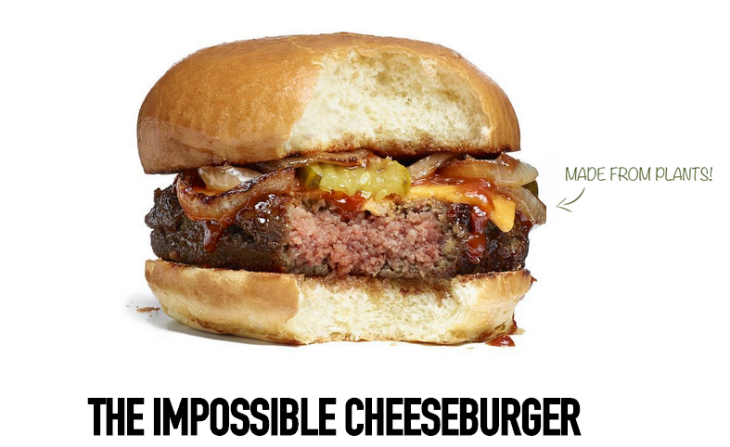
What advice would you give fellow marketers ambitious to “go beyond convention”?
Three thoughts aside from the point above about balancing newness and familiarity…
Firstly, I think purpose helps. Discarded, Patagonia and Impossible Foods all share a similar purpose in wanting to pave the way to a more sustainable world. While I don’t think a clear purpose is necessary or sufficient to ‘go beyond convention’, it helps. It helps you decide which conventions you need to challenge and which you should conform to; it helps attract and bring together like-minded people with your brand; and it also helps align and motivate your organisation to leap over the hurdles that challenging conventions inevitably throws up.
Secondly, be sensitive to conventions. They’re mostly unwritten, unspoken or subconscious. Classic marketing insight advice, but taking an outsider’s perspective and questioning the everyday leads to a deeper understanding and fresh ideas. That’s why I love Impossible Food’s beetroot-dripping burger – they had a deep understanding of just how important the convention of squeezing a burger is to perceptions of taste.
Finally, find a sandbox. Not every organisation or every part of an organisation will want or need to go beyond convention. Most accounting teams should probably stick to them pretty rigidly. But on the flipside, I’d hazard a guess that most organisations will have a function, a team, a brand, or campaign that’s protected or relatively free from the pressures of convention – a sandbox where you can experiment and challenge conventions. Spot that sandbox (or help build one) and see what conventions you can go beyond.
